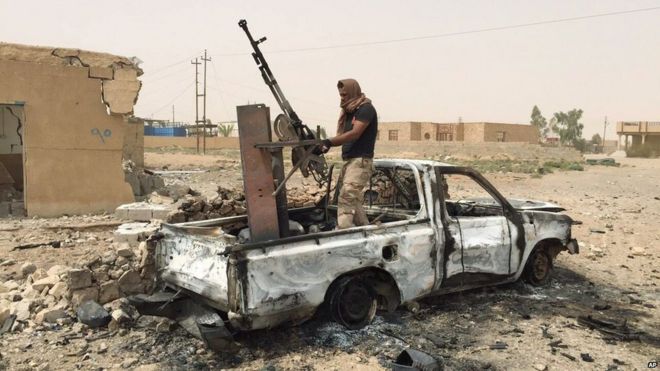Before heading to Europe, first to Australia, where the Associated Press reported June 17 that the businesses that smuggle people and use Indonesia as a transit point are being paid off by Australian government officials to return their human cargoes to Indonesia.
The result? People who've paid money to the smugglers are beaten and forced into rickety boats by the traffickers, who know they can cash in on the payoff system. So the crooks are profiting twice.
Note also from the report that the migrants quoted were a Bangladeshi and a Sri Lankan. So while the report mentions that Indonesian officials are huffy about the reported Aussie payoff, the question would be how much the transnational human trafficking companies that use Indonesia as a big staging area for smuggling people across a wide region are bribing Indonesian officials to look the other way.
Now to Rome, Italy. On June 4 James Mackenzie reported for Reuters, Italy hit by new corruption scandal over migrant centres by James Mackenzie:
Italian police said they arrested 44 people on Thursday suspected of being part of a network of corrupt politicians, officials and business people in Rome accused of rigging public contracts to manage migrant reception centres.
The arrests follow the discovery of a vast system of corruption in the Rome city government last year -- a case dubbed "Mafia Capital" which prompted the city hall to ask the national anti-corruption authority to investigate a list of suspect public contracts.
The latest arrests were the result of further investigations linked to the Mafia Capital scandal.
As well as the 44 people arrested, warrants were also issued against another 21 people in the area around Rome, L'Aquila in central Italy and Catania and Enna in Sicily.
The investigation uncovered a system designed to ensure a cartel won lucrative contracts to manage migrant reception centres, exploiting the growing refugee crisis in the Mediterranean.
The highest profile figure caught up in the Mafia Capital scandal was the former mayor of Rome Gianni Alemanno, who resigned from his offices in the right wing Brothers of Italy party last year.
But the case, which has affected politicians across the political spectrum, prompted Prime Minister Matteo Renzi to place the whole local organisation of his centre-left Democratic Party (PD) in Rome under special administration.
[...]
The arrests follow the discovery of a vast system of corruption in the Rome city government last year -- a case dubbed "Mafia Capital" which prompted the city hall to ask the national anti-corruption authority to investigate a list of suspect public contracts.
The latest arrests were the result of further investigations linked to the Mafia Capital scandal.
As well as the 44 people arrested, warrants were also issued against another 21 people in the area around Rome, L'Aquila in central Italy and Catania and Enna in Sicily.
The investigation uncovered a system designed to ensure a cartel won lucrative contracts to manage migrant reception centres, exploiting the growing refugee crisis in the Mediterranean.
The highest profile figure caught up in the Mafia Capital scandal was the former mayor of Rome Gianni Alemanno, who resigned from his offices in the right wing Brothers of Italy party last year.
But the case, which has affected politicians across the political spectrum, prompted Prime Minister Matteo Renzi to place the whole local organisation of his centre-left Democratic Party (PD) in Rome under special administration.
[...]
The migrant centres, often run on contract by cooperative social organisations, have proved a rich source of income for unscrupulous operators as the Mediterranean migrant boat crisis has intensified, leaving authorities struggling to deal with the tens of thousands of arrivals.
"We need to stop the boat departures and stop the public tenders immediately," Matteo Salvini, head of the anti-immigrant Northern League party said following the latest arrests.
The case has underlined the persistent problem of political corruption in Italy, which ranked 69 out of 177 countries in the latest index by Transparency International, the global anti-corruption group.
Police said "Mafia Capital" was based around a network running back over many years in Rome involving local politicians, business people and criminals linked to violent neo-fascist groups active in the 1970s and 1980s.
They said the cartel had been able to secure "significant economic benefits" by fixing public contracts to manage migrant reception centres and excluding rival bidders.
"We need to stop the boat departures and stop the public tenders immediately," Matteo Salvini, head of the anti-immigrant Northern League party said following the latest arrests.
The case has underlined the persistent problem of political corruption in Italy, which ranked 69 out of 177 countries in the latest index by Transparency International, the global anti-corruption group.
Police said "Mafia Capital" was based around a network running back over many years in Rome involving local politicians, business people and criminals linked to violent neo-fascist groups active in the 1970s and 1980s.
They said the cartel had been able to secure "significant economic benefits" by fixing public contracts to manage migrant reception centres and excluding rival bidders.
[...]
[END REPORT]
I think the AP and Reuters reports are pointing to the proverbial tip of the iceberg. There have been notable exceptions such as the BBC's tough-minded May 13 report, The Facebook smugglers selling the dream of Europe, and British tabloids ("Meanwhile, Britain's tabloid media took great pleasure Thursday in lashing out at two of their favourite targets: government immigration policy and the French. ... "Send In The Army", the right-wing Daily Mail splashed on its front page."), but the plight of refugees has blinded many reporters to the fact that the huge diasporas are a business.
The business is so big it couldn't operate without the cooperation of corrupt politicians and officials -- a fact that applies across the world. The Pittsburgh Tribune-Review investigative report on American 'coyotes' I highlighted recently mentioned that the corruption that makes human smuggling from Mexico a big business exists on both sides of the border. That is probably why the fees charged by the smugglers keep increasing: since the U.S. crackdown at the border there's an increasing number of palms to grease.
Yet central government officials from the U.S. to Europe to Australia to Mexico are not confronting the implication. Corrupt politicians and officials in the target and transit border areas have made a market in human trafficking. The grotesque irony is that the market has injected so much noise in the system that genuine refugees are shoved out.
In their place are people who are working the refugee system:
The truth is that governments in the poorer countries have gone broke paying a bloody fortune to import oil priced in U.S. dollars in a doomed attempt to carry out IMF economic prescriptions.
The truth is that remittances, industrialized by the middle of the last decade at the behest of the World Bank-IMF, have doled out just enough money to people in the recipient countries so they don't rise up and overthrow their corrupt governments.
The truth is that Thailand's King Bhumibol Adulyadej was right when he observed (more politely than I'm doing here) that most of the world's peoples weren't ready for the vision of utopia marketed by the World Bank-IMF, and that it was time "to take a careful step backward."
That's the truth about economic refugees. All other explanations are hot air.
********
The business is so big it couldn't operate without the cooperation of corrupt politicians and officials -- a fact that applies across the world. The Pittsburgh Tribune-Review investigative report on American 'coyotes' I highlighted recently mentioned that the corruption that makes human smuggling from Mexico a big business exists on both sides of the border. That is probably why the fees charged by the smugglers keep increasing: since the U.S. crackdown at the border there's an increasing number of palms to grease.
Yet central government officials from the U.S. to Europe to Australia to Mexico are not confronting the implication. Corrupt politicians and officials in the target and transit border areas have made a market in human trafficking. The grotesque irony is that the market has injected so much noise in the system that genuine refugees are shoved out.
In their place are people who are working the refugee system:
One population not found in Calais [migrant camps], he said, is Syrians, who usually qualify for asylum when they land in Greece or Italy. Instead, the migrants are mostly Afghans, Eritreans, Sudanese, and other sub-Saharan Africans who move inward in Europe because they won’t be guaranteed asylum in the countries where they land.
“These are purposeful people who want to go to the U.K. because that they understand their families, relatives, friends, or ethnic groups are there,” Papademetriou told FP.
“They’re looking for opportunities to stay in the U.K. and survive within these ethnic enclaves that have been created there.”Those who argue such people are 'economic refugees' are also injecting noise into the system. They're also are sweeping the complexities of this era under a carpet they term "bad governance." To add insult to intelligence, they yap in Worldbankese when called to explain what they mean. If only all these badly governed countries would follow the sound economic prescriptions the IMF has given them, all these people wouldn't be fleeing their own countries.
The truth is that governments in the poorer countries have gone broke paying a bloody fortune to import oil priced in U.S. dollars in a doomed attempt to carry out IMF economic prescriptions.
The truth is that remittances, industrialized by the middle of the last decade at the behest of the World Bank-IMF, have doled out just enough money to people in the recipient countries so they don't rise up and overthrow their corrupt governments.
The truth is that Thailand's King Bhumibol Adulyadej was right when he observed (more politely than I'm doing here) that most of the world's peoples weren't ready for the vision of utopia marketed by the World Bank-IMF, and that it was time "to take a careful step backward."
That's the truth about economic refugees. All other explanations are hot air.
********






